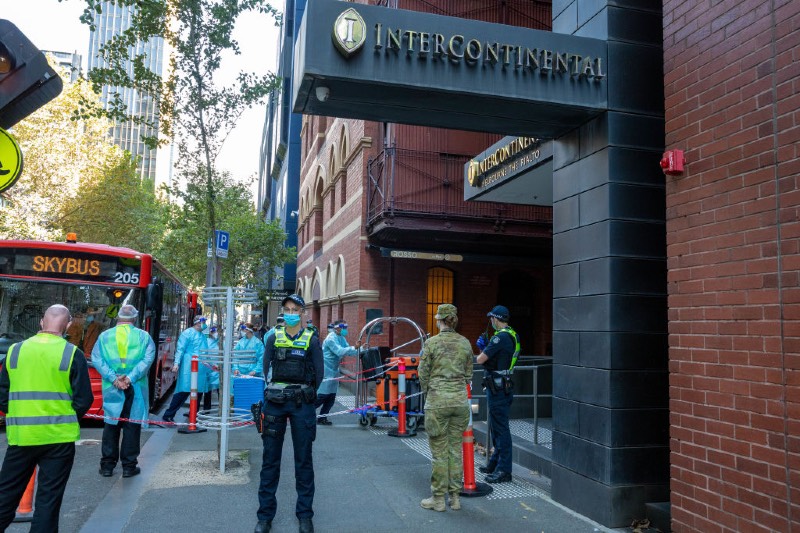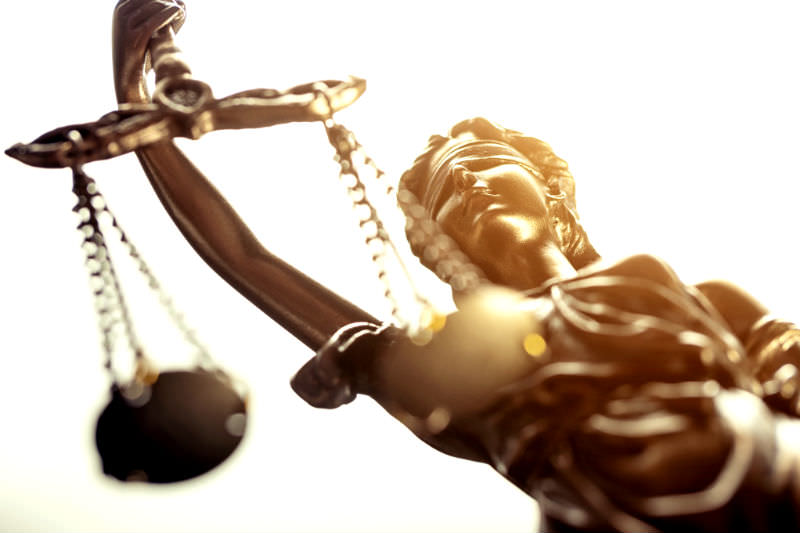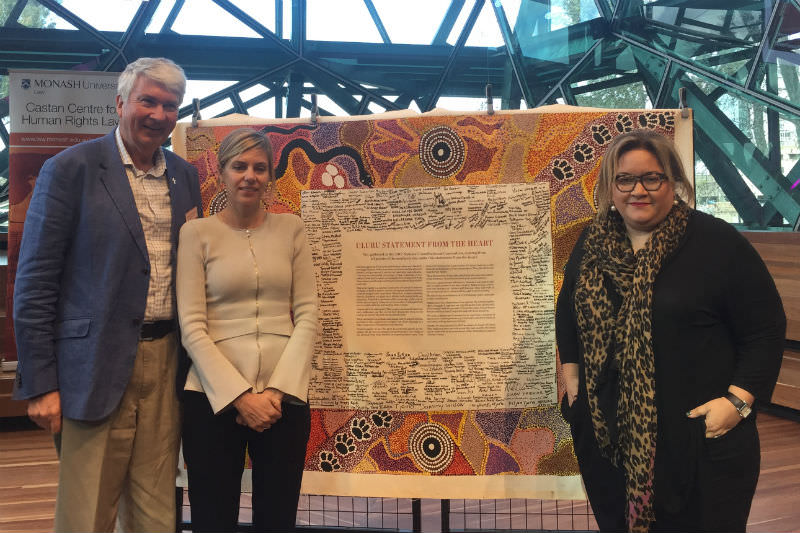Keywords: Human Rights Charter
-

AUSTRALIA
- Joseph Camilleri
- 28 August 2024
3 Comments
As Australia faces numerous moral crises from domestic inequality to global militarization, a proposed national charter of principles could to reshape our society and redefine our global role. This declaration would acknowledge Indigenous dispossession, prioritize human rights, and shift focus from military alliances to human security.
READ MORE
-

AUSTRALIA
In response to campus protests, universities erred on the side of free speech when every other day, the prevailing ethos is one of ‘safetyism’, namely suppressing speech or inquiry if an identity group frames it as ‘harmful’ to them. Universities should strive to be uncomfortable and ‘unsafe’ for all, with no identity immune from robust scrutiny.
READ MORE 
-

AUSTRALIA
- Bill Calcutt
- 10 November 2023
1 Comment
As demonstrated in debates around the Voice, increasingly divergent perceptions of reality affect our dedication to our societal obligations and the upkeep of our shared core values. If left unchecked, this drift away from a shared understanding of the common good will further undermine trust and mutual respect that bind us, challenging the very foundations of a humane, civilised and inclusive society.
READ MORE 
-

INTERNATIONAL
- Binoy Kampmark
- 11 May 2021
10 Comments
While the ban is unique in its severity, it is not divorced from a broader tendencies as to how citizenship has been appraised during pandemic times. Public health and safety have been prioritised over the standard liberties associated with citizenship.
READ MORE 
-

AUSTRALIA
- Cristy Clark
- 26 November 2020
5 Comments
This past weekend, I visited my grandparents in their residential aged care home. As usual, it was both lovely and utterly heartbreaking. Lovely, because I feel so lucky to be able to spend time with them, that they are still alive, their home is accepting visitors, and they still remember who I am. But, also, heartbreaking, because aging is tough, and living in residential aged care is tougher still, and this year, well, this year has made it all so much harder.
READ MORE 
-

ARTS AND CULTURE
- Bree Alexander
- 11 December 2019
4 Comments
While we can only speculate on what it means for the future of funding beyond the current budget, alarm bells are ringing for many of us who recognise the symbolic power of rendering the arts invisible at a federal level. A strong, vibrant arts sector is essential to a thriving democracy.
READ MORE 
-

AUSTRALIA
- Frank Brennan
- 10 December 2018
14 Comments
It is appropriate to affirm the worldwide amplification system for the 'still, small voice' of conscience speaking to power, even when that voice of conscience maintains a religious tone, while the power of the state is increasingly secular and the tone of society more stridently secularist.
READ MORE 
-

AUSTRALIA
- Carolina Gottardo
- 06 August 2018
14 Comments
The adoption of the GCM should not be politicised as it is a non-binding framework that benefits our country, the international community and migrants. Migration is a global phenomenon, not a situation that single countries can deal with in isolation. Australia has nothing to lose and much to gain from adopting the Compact.
READ MORE 
-

RELIGION
- Frank Brennan
- 20 July 2018
4 Comments
'I voted 'yes' in last year's ABS survey on same sex marriage. As a priest, I was prepared to explain why I was voting 'yes' during the campaign. I voted 'yes', in part because I thought that the outcome was inevitable. But also, I thought that full civil recognition of such relationships was an idea whose time had come.' — Frank Brennan, 2018 Castan Centre Human Rights Conference
READ MORE
-

RELIGION
- Frank Brennan
- 17 February 2017
3 Comments
The commission's forensic scrutiny of past actions of church officials in no way constitutes an interference with the freedom of religion. Its spotlight is to be welcomed, provided only that it is shone on a truly representative sample of all institutions which have been found wanting and provided the same light filter is applied to all institutions. I do however have a problem with the commission making findings on issues like the want of compassion when those findings are made only against a Church.
READ MORE
-

AUSTRALIA
- Kate Galloway
- 13 January 2017
4 Comments
The Minister has committed to improving youth detention facilities, the appointment of 100 more staff, and revision of Victoria's youth detention policy. But in doing so, she has sheeted home blame to the former government, and has accused lawyers for the children of pandering to ideology. The government's discourse continues the tough-on-crime narrative rather than acknowledging the causes and contexts of juvenile offending and the consequences of appalling facilities on the youth who are detained.
READ MORE 
-

AUSTRALIA
- Frank Brennan
- 31 October 2016
3 Comments
'First warning: if you're going to be serious about a Human Rights Act, make sure that your government departments are sufficiently resourced and encouraged to produce meaningful statements of compatibility. Second warning, especially in a unicameral legislature: make sure that your parliamentary committee on human rights has sufficient muscle and status to arrest the progress of any bill until it has been thoroughly scrutinised for human rights compliance.' Frank Brennan's remarks at the Fringe Conference of the 2016 Queensland ALP Convention.
READ MORE